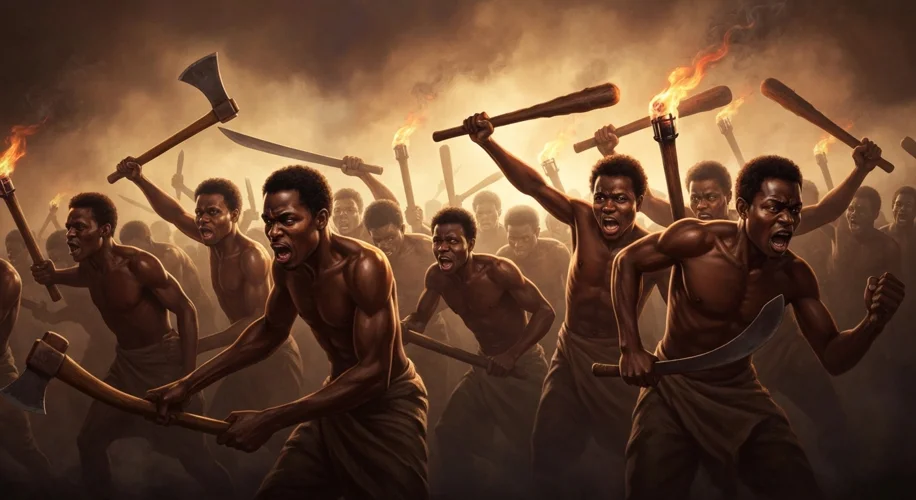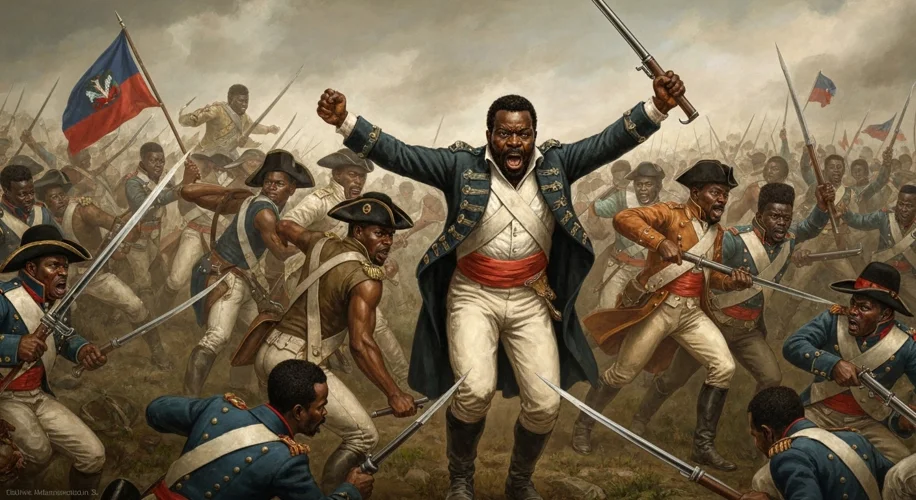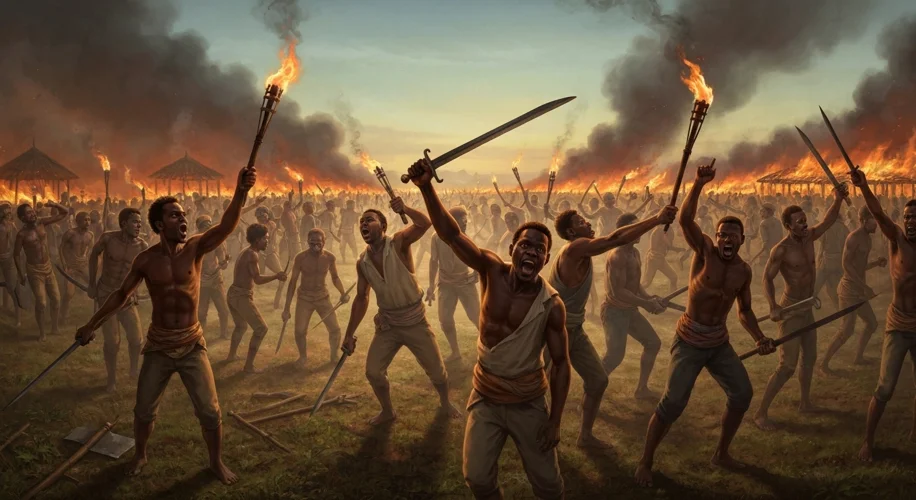In the annals of history, few events resonate with the raw power of liberation quite like the Haitian Revolution. From August 22, 1791, to January 1, 1804, the enslaved people of Saint-Domingue, a French colony that was the most profitable in the Caribbean, waged a war that would shock the world and birth the first free republic of former slaves.
Imagine a land where unimaginable wealth was built on the backs of the broken, a place where the air itself seemed thick with the cries of the oppressed. Saint-Domingue, the western third of the island of Hispaniola, was a brutal sugar-producing machine. Over half a million enslaved Africans toiled under the relentless sun, subjected to unimaginable cruelty. The colony’s elite, the grands blancs, lived lives of opulent excess, fueled by the sweat and blood of those they considered property. Yet, beneath the surface of this seemingly unshakeable order, embers of defiance glowed.

The stage was set not just by the inherent injustice of slavery, but by the seismic shifts of the Enlightenment and the French Revolution. Ideas of liberty, equality, and fraternity, though often conveniently ignored by those who benefited from the existing power structures, seeped into the consciousness of the enslaved. The Vodou ceremonies, held in secret, became not just spiritual gatherings but also potent incubators of rebellion. It was in these clandestine meetings, under the cover of darkness, that plans were laid and a collective will to be free was forged.
The revolution did not erupt in a single, sudden explosion. It was a complex, multi-faceted struggle involving various groups with their own agendas: the enslaved Africans, the gens de couleur libres (free people of color, many of whom were also slave owners but faced racial discrimination), and the French colonial administration, which was itself torn by the events unfolding in mainland France. Key figures emerged from the crucible of conflict. Toussaint Louverture, a formerly enslaved man, rose to become a brilliant military and political leader, a strategist whose tactical genius outmaneuvered European armies.
Louverture’s initial goal was not outright independence but rather the abolition of slavery and equal rights for all. However, as Napoleon Bonaparte sought to re-establish French authority and, shockingly, reinstate slavery in 1802, the fight for independence became inevitable. Louverture’s capture and deportation to France, where he died in a dungeon, only galvanized his lieutenants, such as Jean-Jacques Dessalines and Henri Christophe. They continued the struggle with a ferocity born of desperation and a burning desire for self-determination.
The fighting was brutal and uncompromising. The French, under Charles Leclerc, attempted to crush the rebellion with overwhelming force, employing tactics of extreme violence. However, the Haitian forces, hardened by years of struggle and fighting for their very survival, proved to be formidable opponents. Yellow fever also played a significant role, decimating the French ranks, a cruel irony that nature itself seemed to side with the oppressed.

On January 1, 1804, in the city of Gonaïves, Jean-Jacques Dessalines declared the independence of Haiti, naming the nation Ayiti in its indigenous Taíno name. It was a moment of unparalleled triumph, a beacon of hope for enslaved people across the Americas and a terrifying specter for slave-holding powers. Haiti had achieved what many believed was impossible: a successful slave revolt leading to the establishment of a sovereign nation.
The consequences of the Haitian Revolution were profound and far-reaching. It struck a severe blow to the institution of slavery, inspiring revolts and movements for abolition elsewhere. For France, it was a devastating economic and political loss, ultimately contributing to Napoleon’s decision to sell the Louisiana Territory to the United States. The newly formed Haitian nation, however, faced immense challenges. It was ostracized by the international community, particularly by slave-holding nations like the United States and Great Britain, who feared the example it set. France demanded a crippling indemnity for the loss of property (the enslaved people), a debt that would burden Haiti for generations.

The Haitian Revolution was more than just a successful uprising; it was a radical reimagining of human rights and self-governance. It demonstrated that those who were systematically dehumanized possessed the courage, intelligence, and will to forge their own destiny. The legacy of Haiti serves as a potent reminder that freedom is not given, but taken, and that the struggle for liberation can, against all odds, forge a new dawn from the deepest darkness. It stands as a testament to the indomitable spirit of humanity in its quest for liberty.

